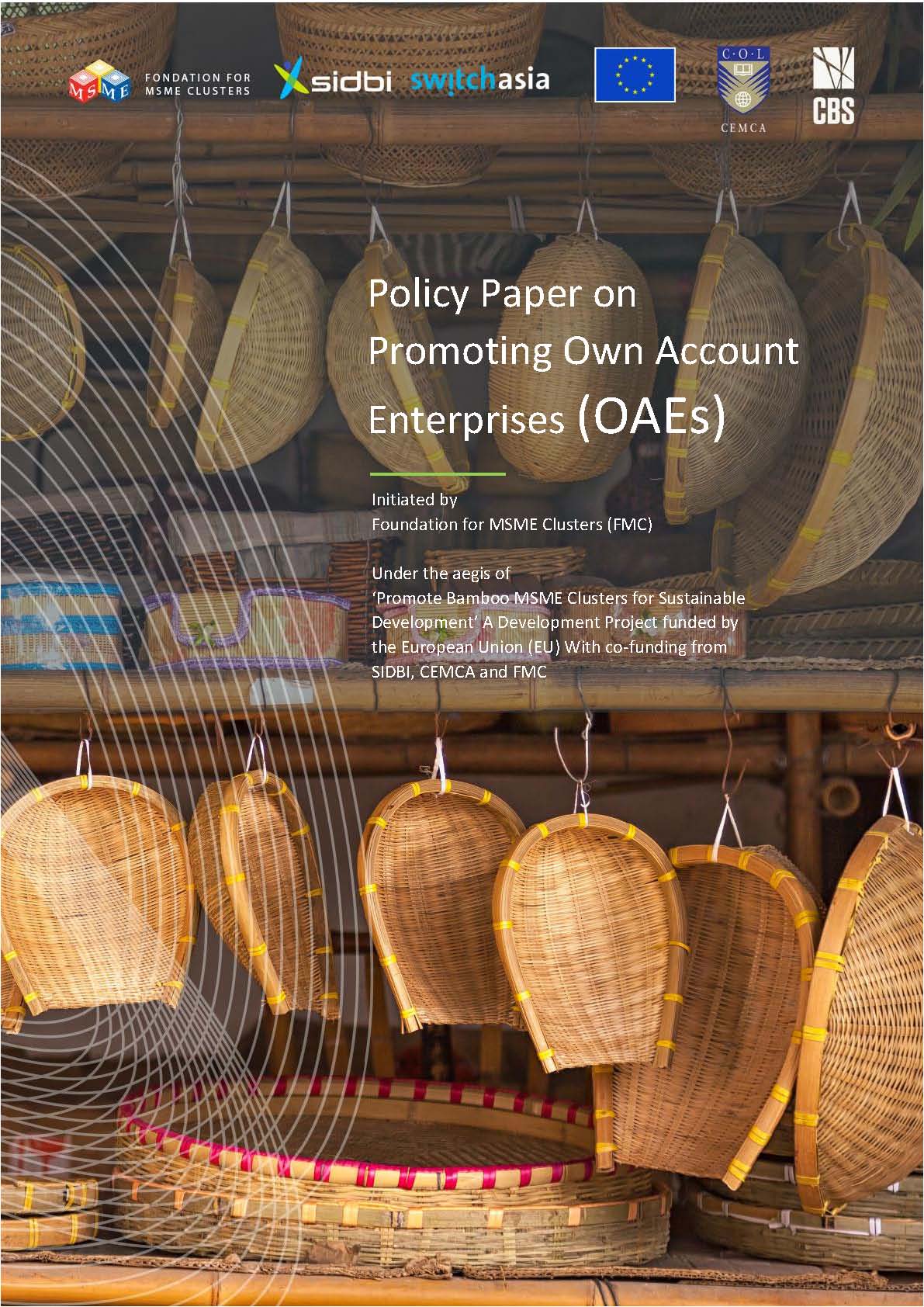
Micro, Small and Medium Enterprise (MSME) sector is a key player in generating employment and contributing to the India’s GDP and industrial output. There are 6.34 Crore enterprises in various industries, employing close to 11.1 Crore people.1 In all, the MSME sector accounts for 29 percent of India’s GDP and 40 percent of exports.
Published by: FMC, SIDBI, CEMCA and CBS
Year of publication: 2022
Number of pages: 13
Download: PDF
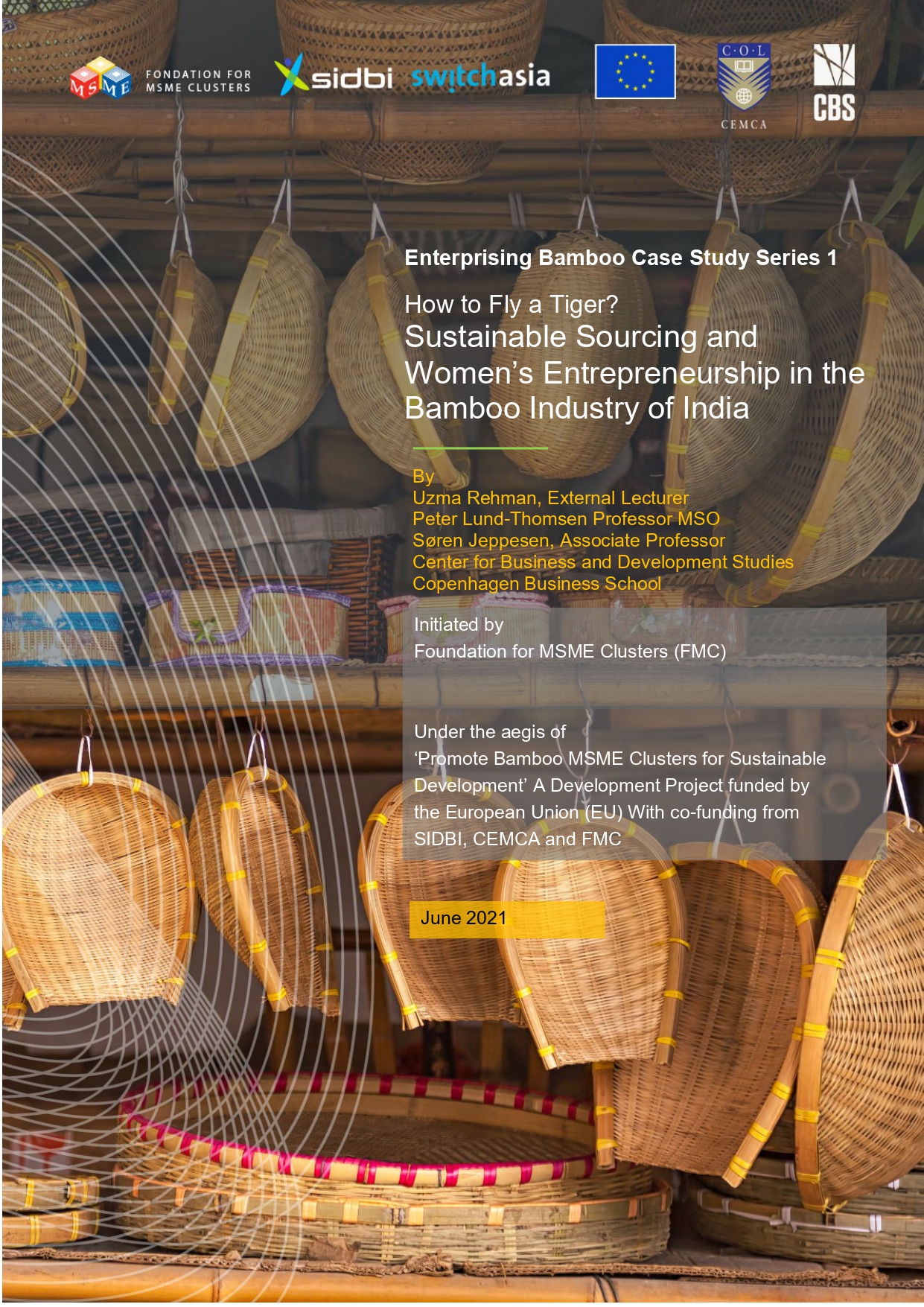
FMC support with CBS (Copenhagen Business School), SIDBI (Small Industrial Development bank of India), CEMCA (Commonwealth educational Media Centre for Asia) are working on a project to Promote bamboo MSME clusters for Sustainable Development funded by: EU Switch Asia. In last 4 years of project implementation, we have worked on promotion of bamboo-based clusters in 9 different states of India, promotion of green GDP, providing market linkages for social enterprises working on bamboo-based products, working on bamboo harvesting techniques, various trainings for farmers, producers etc.
To support the bamboo artisans and spread information about bamboo sector of India among the students of your prestigious institute. This case study can be used for students studying supply chain management, marketing management, circular economics, sustainability development and other courses related to sustainable products.
Published by: FMC, SIDBI, CEMCA and CBS
Year of publication: 2022
Number of pages: 13
Download: PDF | Teaching Notes (June 2022)
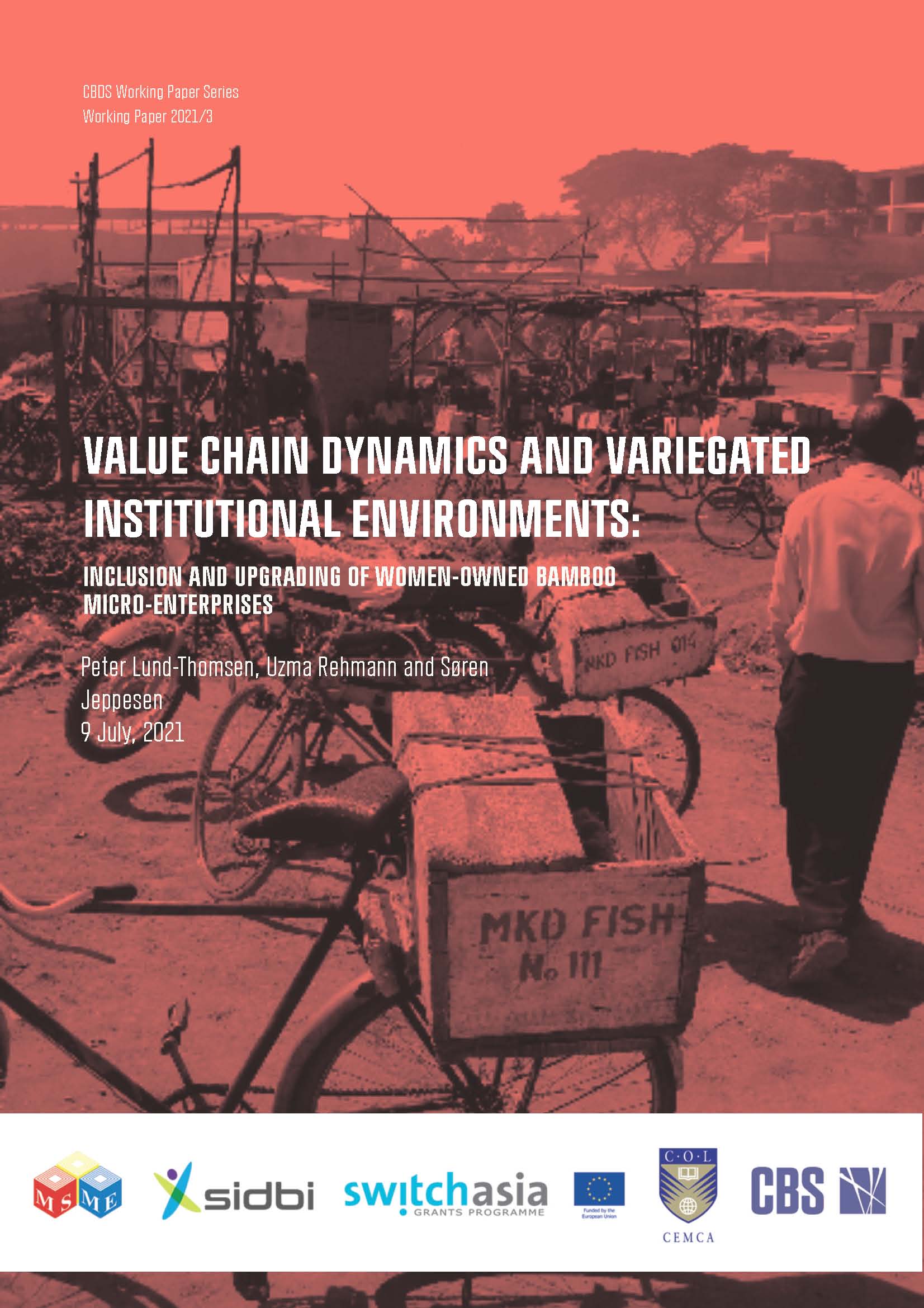
This working paper explores how value chain dynamics and variegated institutional environments affect the prospects for inclusion/exclusion and economic upgrading of women-owned micro-enterprises to the Indian bamboo value chain. The paper combines insights from the literatures on value chain analysis and institutional theory to create a novel theoretical framework for answering these questions. It then applies this framework to analysis of the inclusion/exclusion and economic upgrading challenges of micro-enterprises in the bamboo value chains of four Indian states: Assam and Meghalaya in the Northeast, Odisha in the East,
and Madhya Pradesh in the Center. The empirical analysis highlights how the interaction between value chain dynamics and regulatory, normative, and cultural-cognitive institutions at different scales (national, state, and local) both enhance and undermine the inclusion/exclusion and economic upgrading of micro-enterprises to the Indian bamboo value chains with subsequent implications for marginalized bamboo producer communities in India. The conclusion highlights the main findings, policy, and research implications of the working paper.
Published by: FMC, SIDBI, CEMCA and CBS
Year of publication: 2021
Number of pages: 37
Download: PDF
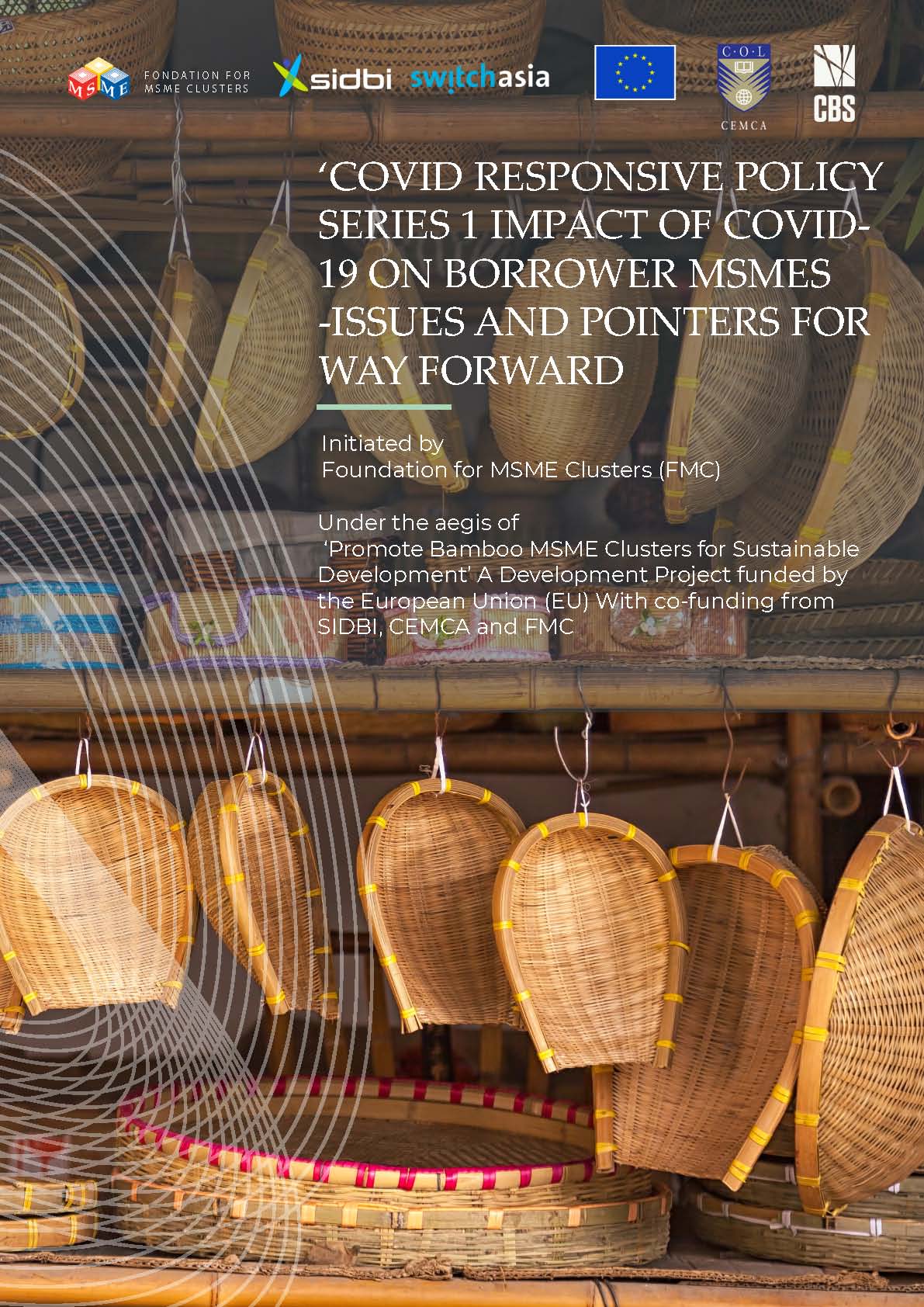
The advent of Covid-19 in 2020 had a cascading impact on the MSMEs of India, the banking system and the economy. Thanks largely to the quick liquidity infusion support to MSMEs through the banks, guaranteed by the Government of India and a few other measures to mitigate the impact of covid that helped provide a good degree of resilience to MSMEs without adversely affecting the sustenance of the banking system. There are however still a number of after-effects that still need to be dealt with across all sectors, particularly in the wake of rising NPAs thus requiring loan restructuring and liquidation of loans in the case of unviable enterprises.
In order to help identify the key areas of concern and suggest ways to resolve/mitigate them, the ‘Foundation for MSME Clusters’ (FMC), a not-for-profit NGO with support drawn from a European Union funded project, constituted a ‘Think Tank Group’ comprising of seven eminent persons. While two of them were drawn from the national level MSME industry association, the other five came from the banking sector in their individual capacity. They deliberated over a period of two months in October – November 2021 and recommended a slew of measures by mid December 2021 that can help the Government, Banks and relevant institutions to further work upon in their own context. These recommendations provided in the attached report along with the context and methodology should therefore be seen as intelligent pointers under its ‘COVID Response Policy Series 1’ to build on.
Published by: FMC, SIDBI, CEMCA and CBS
Year of publication: 2021
Number of pages: 34
Download: PDF
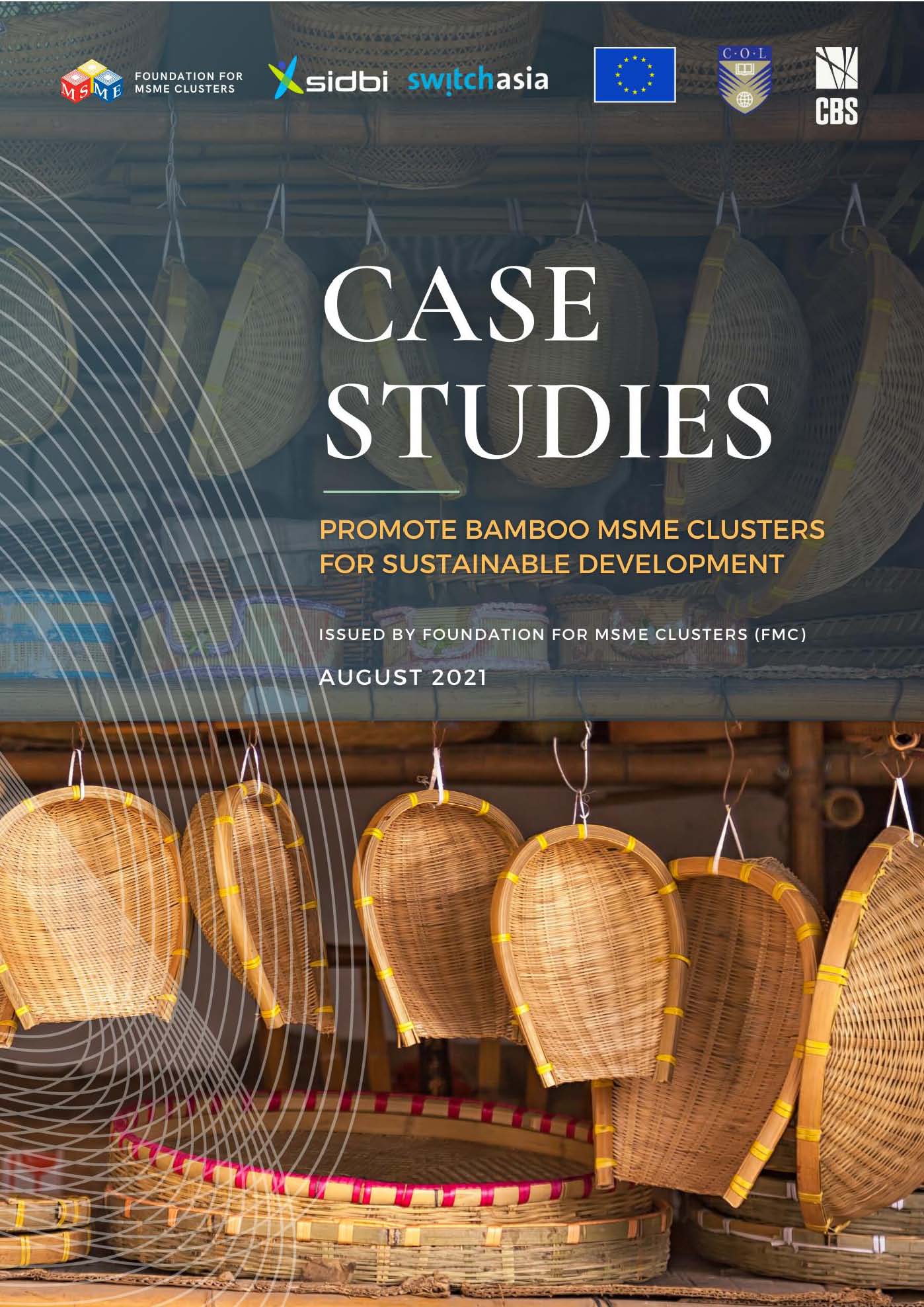
Through case studies, FMC wants to encourage other bamboo artisans and entrepreneurs, nationally and internationally, to adopt similar strategies to break away from the shackles of poverty, together with mitigating climate change.
Published by: FMC, SIDBI, CEMCA and CBS
Year of publication: 2020 | 2021
Number of pages: 14 | 38
Download: 1.Case-Study(PDF) | 2.Case-Study(PDF)

The report is about to present an overview of bamboo production and trade in India and the world, understand the current situation in Jharkhand and explore opportunities to add value to the lives of thousands of people who depend on bamboo for their livelihoods.
This publication has been produced under the Action: “Promote Bamboo MSME Clusters for Sustainable Development” with the financial assistance of the European Union and the Mukhyamantri Laghu Avam Kutir Udyam Vikas Board, Department of Industries, Government of Jharkhand.
Published by: FMC, SIDBI, CEMCA and CBS
Year of publication: 2019
Number of pages: 58
Download: PDF